Early Childhood Development – A Curriculum Story
This is the story of six Neighbourhood Care Points (NCPs) in the Ezulwini Valley in Swaziland. NCPs were first started by UNICEF to provide support and care for children whose families were struggling with poverty and the effects of the HIV/AIDs epidemic. Their over-riding aim is to provide vulnerable children and orphans with the care and support they and their families need to enable them to continue to live within their community as opposed to being placed in an orphanage.
In 2012, when our story starts, these six NCPs, supported by All Out Africa, were providing two meals a day for the children and very basic childcare. They were staffed by women from the local community who tried to give the children some basic education but struggled because they had no resources and lacked any form of teacher training – some of them had not completed their own schooling. All Out Africa maintained the NCP buildings and volunteer groups painted the walls with educational materials such as the alphabet and numbers, but any teaching that did happen simply involved rote learning, with few opportunities for children to learn through play. Although free primary education for all had recently been introduced in Swaziland the country lacked teachers and schools, so children were (and still are) interviewed at the age of 6 before being given a school place. Many children from the NCPs were failing to pass this interview, so were being excluded from the education system from the very start . . . and so the cycle of poverty continued.
Now, in 2017, all children who are about to graduate (102 children) from these six NCPs have been awarded school places. The schools report that they can no longer distinguish between children from the NCPs and those from more advantaged backgrounds. What is more, the NCP teachers have received training so that they understand various teaching strategies they can employ to help their children learn, and have the confidence to try out various teaching methods through a structured programme of activities which covers the key learning areas of language, maths, art, science and discovery, and physical development. The focus on holistic child development means feeding and health programmes now form a structured part of the development of these children, and parents are becoming engaged in their children’s learning.
What has brought about this transformation, and what has our role been in this?
Dianne first came to Swaziland in 2012 to meet our local partners and to ask what their needs were for volunteer support. She learned about the children’s poor chances of passing their interview for school, and that although All Out Africa wanted to introduce a more formalised learning programme they did not have the time or expertise to do this, either within their own staff or from the generally young and inexperienced volunteer groups they took. She visited the NCPs and saw their basic buildings and lack of resources – until very recently one of them had had no building at all and was referred to as ‘the school under the tree’. She met one of the teachers who had found out on a half-day training course (the only training she had ever received) that a pre-school classroom should have separate areas for writing, reading, dressing-up etc, and the image of this teacher standing by the sign she had stuck up saying ‘Book Corner’ in an empty room with no books was one that remained in her mind long afterwards.
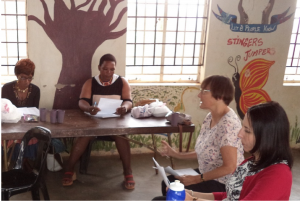
Sarah and Dianne at one of the teacher workshops in 2015
Sarah joined All Out Africa in March 2014. She quickly identified that even those children from the NCPs who got a school place struggled to achieve well and lacked understanding of many of the basic concepts of education. She admired the local women running the NCPs but soon realised they lacked the skills set to do anything much more than childminding. At the same time, she realised that the volunteer groups who spent some time at the NCPs were having inconsistent and not always satisfactory experiences, and as she became more knowledgeable about the ethics of volunteering she realised the volunteer experience they were offering did not meet the criteria of having a clear purpose and a clear role. She looked for a way to address all these issues and realised an organised curriculum for the NCPs, involving the teaching of relevant skills by teachers who had received appropriate training, alongside a clearly directed programme for the volunteers as classroom assistants, would go a long way towards meeting these needs.
Dianne contacted Sarah during 2015 to find out if there was still a need for someone to help write a curriculum for the NCPs. She had had some experience of curriculum design, albeit for older children, during her teaching career and felt motivated to help local staff put something together if the need was still there. This coincided so closely with Sarah’s ideas that we decided to go ahead. Dianne returned to Swaziland as a volunteer in September 2015, Sarah cleared some space in her diary and we approached the task with enthusiasm.
The teachers did not have the expertise to write the curriculum but were consulted from the very beginning. We held teachers’ workshops to get their ideas on topics to include, and got their buy into what we were proposing. Our idea was to produce a curriculum which covered a different topic every week, with suggested activities for language, maths, discovery, art, and drama/physical development. Dianne and Sarah consulted pre-school teachers in the UK and Swaziland, had some local help in finding pictures and activities, and put some trial weeks together, which the teachers tried out for us. It quickly became apparent that although they loved the worksheets they could not do the teacher-directed activities without further direction. So, rather reluctantly, we became more prescriptive and put a lot more detail into what we produced. By the time Dianne’s placement was over, the first term was written, including teaching materials and resources for the children. A training session for volunteers had also been put together, showing them how they could provide useful in-class support for the teachers, and trial with a group of Australian teenage volunteers.
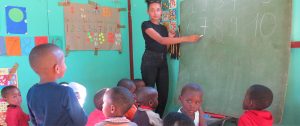
On her return to the UK Dianne continued to work on the curriculum, getting help and advice from a pre-school teacher in the UK who checked the content and made sure tasks were set at an appropriate level for this age group. She checked the entire curriculum against the Swaziland Early Learning Development Standards (a somewhat intimidating document) to make sure all aspects of a child’s development were covered that directed us as to the skills, knowledge and abilities that we need to teach our children to prepare them for primary school. She sent a draft for a year’s curriculum to Sarah by the end of 2015.
It quickly became apparent that the curriculum was still too ambitious. The teachers provided invaluable feedback on what worked and what was too difficult, and Sarah worked hard to make changes, working on this every Sunday in her own time. She included more local /cultural issues, such as respect for elders, safety and to create ambition for the children’s future (hence the topic jobs was included). She also recruited their unskilled volunteers to make resources such as laminated cards which could have multiple uses to help teach recognition of colours, letters, and numbers. As she was doing this alongside her other work this was a massive undertaking. She also realised that we had tried to push things on too fast and that although the teachers were willing to try out the curriculum they were still very nervous of it and lacked confidence in their own abilities. It was therefore decided that volunteer donations that clients pay in their joining fees should be used to fund the appointment of a local, trained primary school teacher who could drive the curriculum forward and train the teachers in their own language – and so Eunice joined the team.
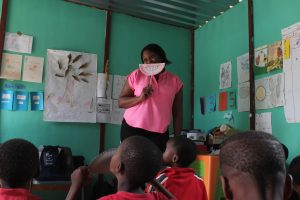
Eunice during a toothbrushing lesson- demo at one of the NCPs
During 2016 Eunice worked hard to engage the teachers, build their confidence and give them teaching skills, and also to trial various topics from the curriculum to gauge what worked and what didn’t. She consulted local primary schools about what skills the children needed to settle well into primary school and wrote these into the curriculum. Already by the end of 2016 primary school teachers were talking very positively about the improvement in the skills of children coming from the NCPs.
In November 2016 a people and places volunteer, Cecilia, came to Swaziland. She was invaluable in helping Eunice insert all she had learned into the curriculum, and by the time her placement had finished a full curriculum for term one was ready for printing. Teaching started in earnest with the start of the school year in January 2017, and Cecilia returned for a second placement and worked on the second term, as well as continuing to help with teacher training sessions. A second people and places volunteer, Yvonne, also came with the specific aim with working with two of the teachers to build their skills and confidence in the classroom, especially as one of them had been very nervous as to whether she would have the ability to deliver the curriculum having dropped out of school so early herself.
As we write this, the teachers are just starting to teach the third term of the full curriculum. Parents are taking their children for their primary school interviews, and so far all have been given places. One parent even reported that the school had said ‘if he comes from an All Out NCP, we’ll definitely give him a place, they’re always really good’. Interviews with the teachers who have been part of the whole process have all been really positive – they are so much more confident than they were two years ago and couldn’t wait to show us their children’s work – one teacher said ‘I am so excited to tell you how well my children are doing’.
The curriculum is by no means perfect and there is a lot more that can be done to build the teachers’ skills. However, we are delighted that after only two years we can say the following things have been achieved:
For the NCP teachers:
- Vastly increased confidence and passion
- No longer fearful that they don’t have the ability to teach
- Improved spoken English
- Understanding of the role of the volunteer groups and how they can use them in their classrooms to enhance learning, whether that is through splitting large classes into groups to enable small group learning, or through asking the volunteers to teach new songs and games, or through asking them to find and prepare resources, or through broadening the children’s cultural experience.
For the children:
- Primary school places for all of them (to date) and therefore a chance to benefit from all that education offers them
- The chance to start primary school on an equal basis with those from more advantaged family backgrounds
- A more varied curriculum with a lot more activities, games and songs as well as a good grounding in writing, counting etc.
For the community:
- For the first time, parental engagement in their children’s education with parents coming into schools to see what the children have been doing
- Better health because of the feeding programme, introduced as part of the holistic approach to education
- Better school buildings with better resources, because this clear and sustainable programme for the NCPs has attracted more donors.
For volunteers:
- The opportunity for skilled people and places volunteers to participate in a really meaningful programme which is showing real results, and which one volunteer described as the best organised placement she has been on.
- For groups of young or unskilled volunteers, the chance to participate in a meaningful programme which involves a clear definition of their role explained as part of their orientation programme, at least one training session in how they can best help, support of a qualified teacher at All Out Africa (Eunice) as well as working with an NCP teacher on a daily basis, participation in a programme of planned activities designed to build children’s skills in a progressive way.
- It is notable that volunteer ratings of their experience have gone up in the last two years and that consistency of the volunteer placements has increased.
We are both immensely proud of these outcomes and grateful to the NCP teachers for being brave enough to participate so willingly in what must have seemed a frightening new curriculum. We feel more privileged than we can say to have had the opportunity to get this project underway.
Dianne and Sarah
This article is written jointly by Dianne Ashman, programme advisor for people and places and Sarah Corley, director of volunteer and student travel at All Out Africa. People and places’ are a recruitment agent for All Out Africa and send experienced volunteers.
We are currently looking for interns to assist us with the development and analysis of our curriculum. If you would like to be a part of this project, check out the description here or email us at bookings@alloutafica.com to find out more!

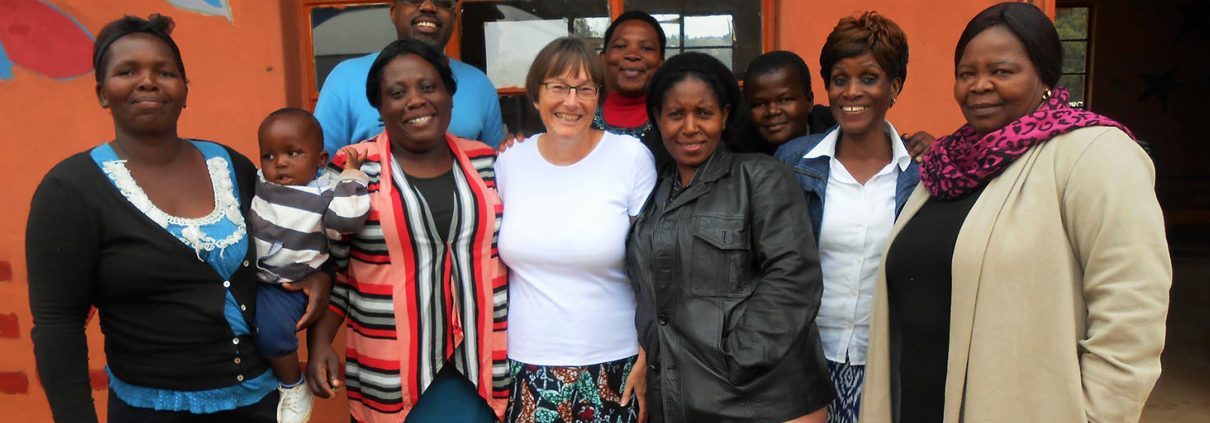
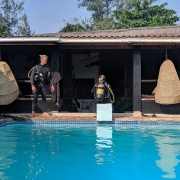
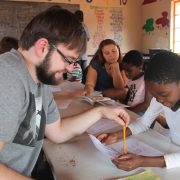
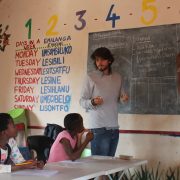
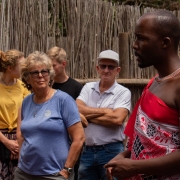
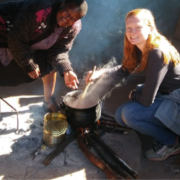
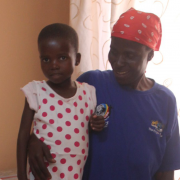
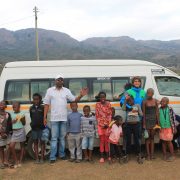
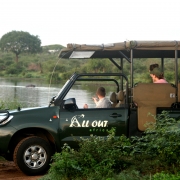 AOA Adventure Tours
AOA Adventure Tours 

Leave a Reply
Want to join the discussion?Feel free to contribute!